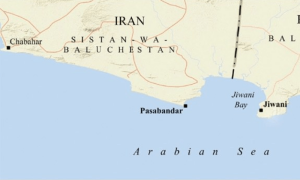LAHORE, Feb 11: The Sui Northern Gas Pipelines Limited (SNGPL) has not restored gas supplies to the textile mills in Punjab in spite of categorical directions issued by the caretaker prime minister to this effect last week.
“Our 180 member mills in the province are being supplied only 15,000mmcfd of gas at present against a load demand of 180,000mmcfd,” All Pakistan Textile Mills Association (Punjab) chairman Akber Sheikh told Dawn on Monday.
He said the prime minister had told the gas utility authorities to shut down gas supplies to the fertiliser units and make the spare gas available to the spinning mills. The SNGPL had also been asked to shift operation of some of the thermal power generation plants to alternate fuels to spare gas for the export-oriented textile industry.
The directives were given by Caretaker Prime Minister Mohammadmian Soomro to the senior gas officials during a meeting on Thursday with the elders of the industry, he said.
SNGPL managing director Rasheed Lone could not be reached for his comments despite repeated attempts.
Sheikh claimed that many of the spinning mills in the province were forced to go without gas for power generation for the last 25 years, affecting their viability.
“Some mills have already closed down their operations because they did not have alternative means, that is, furnace oil- or diesel-fired power generators, for producing electricity for their needs. Others are barely able to run their operations in order to fulfil the orders,” he said.
He said the SNGPL was issued similar instructions by the prime minister after a meeting with an Aptma delegation on Jan 23. But the gas provider had suddenly stopped the supplies to all the mills the very next day, he said.
At that time the spinning sector was receiving 60,000mmcfd or one-third of its gas requirement for power generation.
The provincial Aptma chief expressed his dismay over the situation and said the Water and Power Development Authority, the largest public utility, too was not helping the industry. He said 30 per cent of the industry capacity dependent on electricity had also affected because of five hour of mandatory cut and 3-4 hours of unannounced blackouts.
The upcountry members of Aptma claim to be losing Rs5 billion per month due to the energy shortages in the country.
The textile industry in Punjab had suffered severely because of the energy shortages since the SNGPL began load management towards the end of December last year because of harsh winter conditions.
Aptma says 70 per cent of the industry, which was gas dependent, had suffered losses equal to 25 days’ production due to supply cuts. “Most gas dependent units either do not have alternative arrangements or their backup system is not functioning due to unavailability of diesel and frequent power breakdowns,” Sheikh said.
He said around 33 per cent production had been affected owing to energy shortages. “Besides, the machinery has also been damaged because of power fluctuations. The quality of yarn and fabric in this period has also been affected,” he said.
Sheikh feared that the downstream value-added textile industry would also miss its export targets due to closure of spinning and weaving capacity.
The December textile exports fell by 25 per cent and the prospects for January also looked bleak. The industry fears closures and bank defaults in addition to sizeable lay-offs.












































